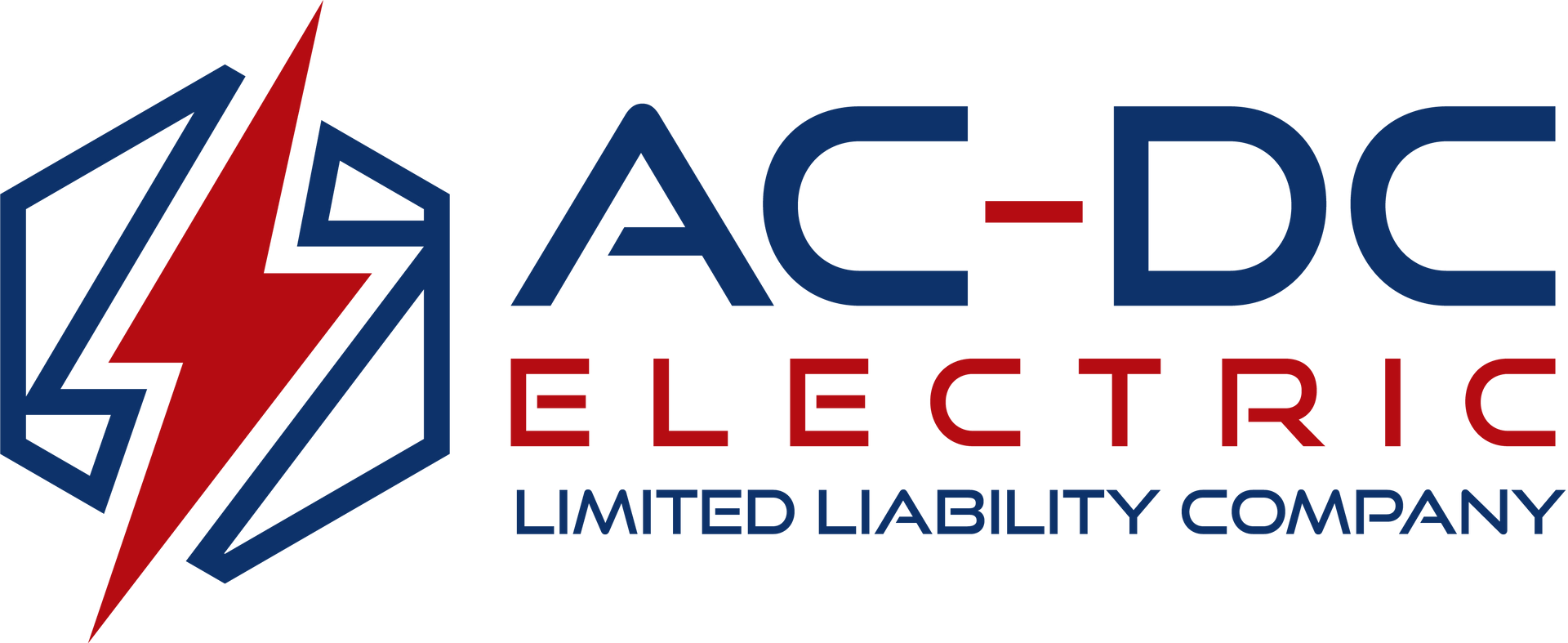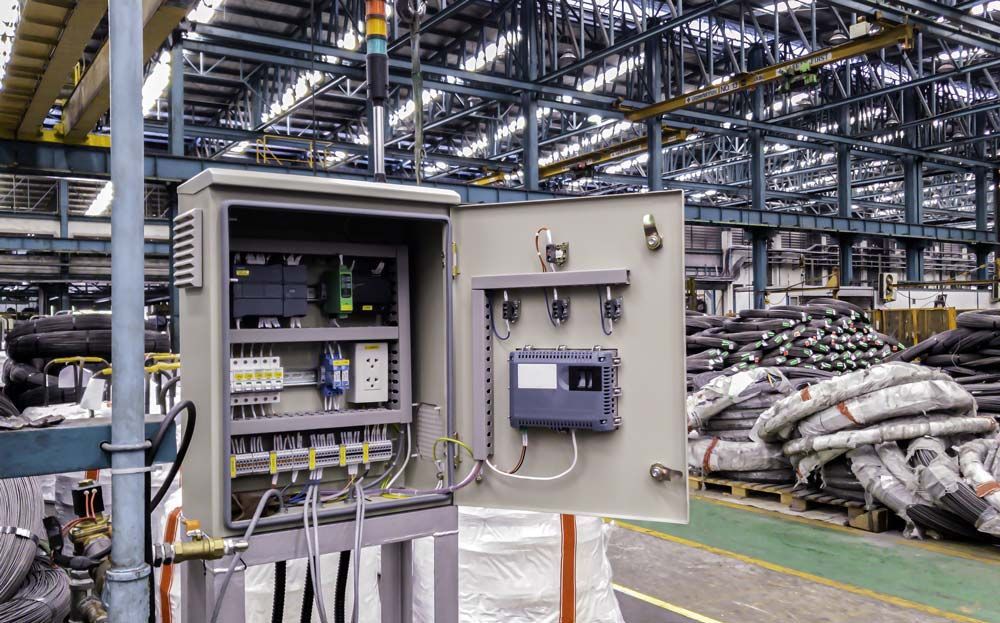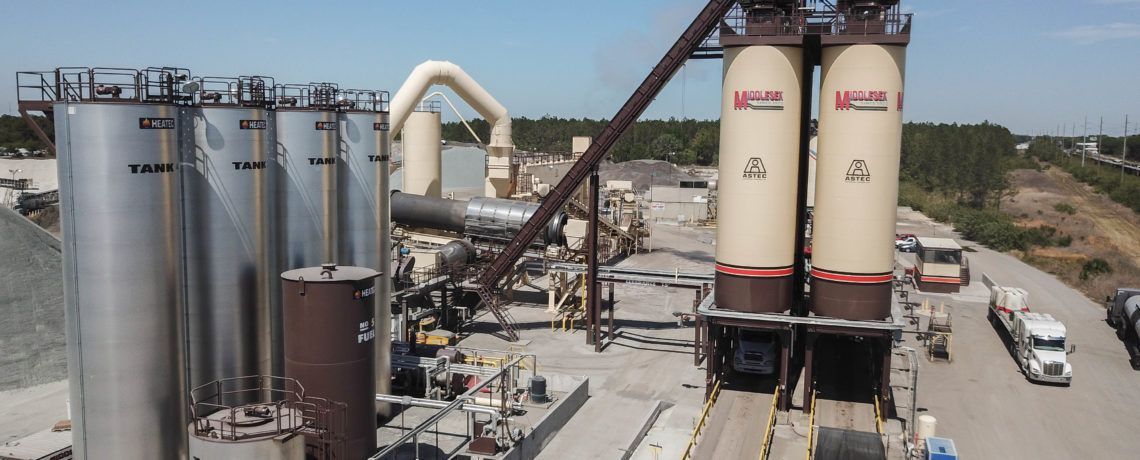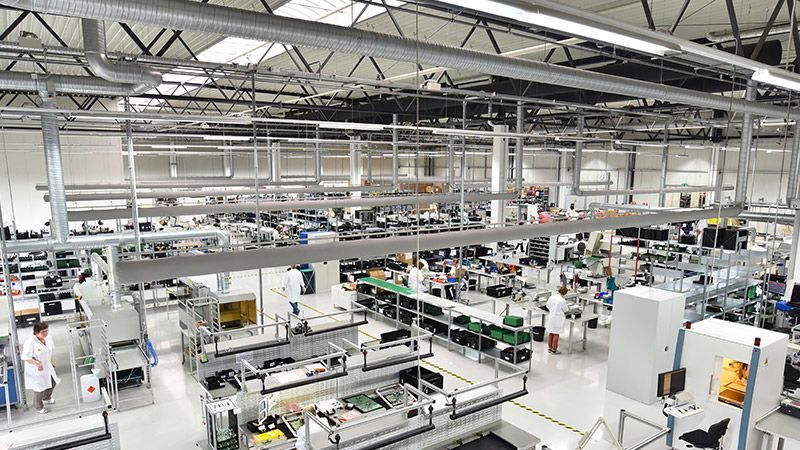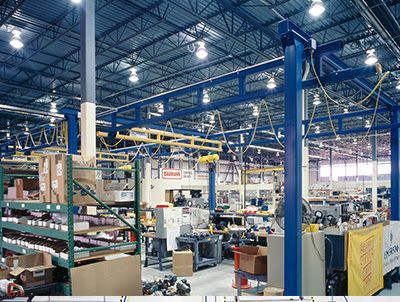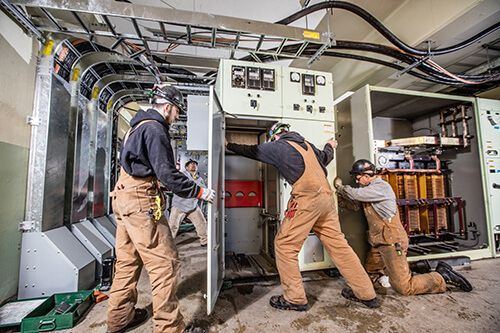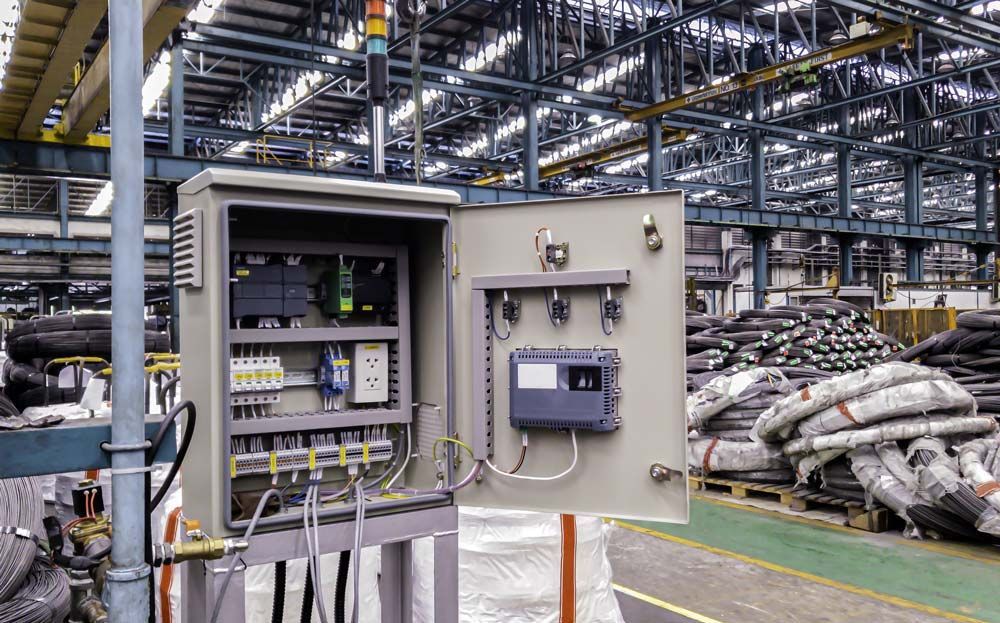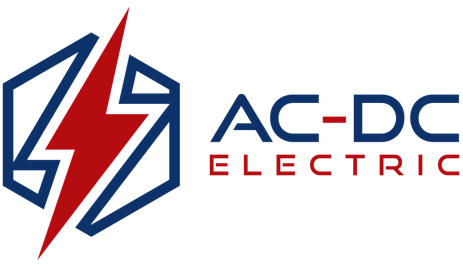Industrial Electrician, Electrical Contractors Near Me in Edmonton,Glasgow and Columbia, KY.
Industrial Electricians
Near You, Wiring, Repairs, Certifications, Affordable Prices
industrial Electrical, Industrial Electrical Services, Commercial and Industrial Electrical Contractors
Satisfaction Guaranteed
Industrial Electrical Contractors, Contractors, Installation, Repairs
Get a free quote today
Contact Us
Helpful Tips from AC-DC Electric
7 Signs Your Industrial Electrical System Needs an Upgrade
1. Frequent Breaker Trips or Power Outages
If circuit breakers trip regularly or power outages occur often, it indicates your system is overloaded or unable to handle current electrical demands. This is common in older systems not designed for modern industrial equipment and machinery.
2. Outdated Electrical Panels and Wiring
Panels installed 25–30 years ago or those using fuses instead of breakers are outdated and may pose safety risks. Old wiring with frayed insulation, corrosion, or damage is a fire hazard and can cause short circuits. Such systems often fail to meet current electrical codes and standards.
3. Lights Flicker or Dim When Equipment Runs
Voltage fluctuations causing flickering or dimming lights when heavy machinery starts indicate an underpowered or overloaded system. This can damage equipment over time and suggests the need for load balancing or increased capacity.
4. Rising Energy Costs Without Clear Explanation
An increase in energy bills may signal inefficiencies in your electrical system, such as poor wiring, outdated components, or lack of energy-efficient technologies. Upgrading can reduce waste and improve energy management.
5. Expansion or Addition of Equipment
If you plan to expand your facility or add new machinery, your current system might not support the additional load. Upgrading ensures proper wiring, panel capacity, and infrastructure for growth
6. Safety Concerns or Code Violations
Signs like burning smells, overheating outlets, sparks, or failed electrical inspections point to dangerous conditions. Older systems may not comply with current safety codes, increasing fire risk and liability. Upgrades bring compliance and enhance safety features such as arc fault and ground fault interrupters.
7. Increased Downtime and Maintenance Costs
Frequent equipment failures or costly repairs related to electrical issues suggest the system is struggling to meet demands. Upgrades improve reliability and reduce downtime, extending equipment life.
If you are experiencing any of these Industrial Electrical issues, Contact AC-DC Electric in Edmonton, Glasgow, Columbia or surrounding areas at 270-393-5007
Recent Industrial Electrical Projects
Every Industrial electric project comes with its own needs and challenges. Tell us your Industrial Electric priorities, and we'll have your Industrial electrical machines fixed quickly.
Industrial Electricians Near Me
Industrial Electrical Contractor, Industrial Electric Heaters, Generators, Industrial Electricity, Wiring, Installation, Repair.
Industrial Electricians Near Me, Edmonton, Glasgow and Columbia, KY.
Industrial Electrician Near me
ACDC Electric, a reliable Industrial Electrician Near Me, is crucial for businesses in cities like Edmonton, Glasgow and Columbia, KY.
An Industrial Electrician Near You can address electrical issues promptly, ensuring minimal downtime and enhanced safety for industrial operations, whether routine maintenance or emergency repairs.
As experienced Industrial Electricians Near You, We can be onsite quickly and we offer the expertise needed to keep systems running efficiently. Businesses in Edmonton, Glasgow and Coumbia, KY and surrounding areas can benefit from the specialized skills of an Industrial Electrician Near me, ensuring compliance with industry standards and reducing operational risks.
Industrial Electrical Contractors
Industrial Electrical Contractors are crucial in cities such as Denver, Commerce City, Greeley, Loveland, Windsor, and Fort Collins. These cities rely heavily on Industrial Electric Contractors maintain the efficiency and safety of their Industrial manufacturing and production facilities. Whether installing new electrical systems or upgrading existing ones, Industrial electric companies ensure that industrial businesses operate without disruptions. In Denver and surrounding cities, the demand for specialized Industrial Electric continues to grow, driven by the expansion of commercial and industrial sectors. Partnering with experienced Industrial Electric providers guarantees compliance with regulations and enhances operational productivity across these key South Central, Kentucky locations.
Frequently Asked Question's- Industrial Electricians
What qualifications do I need to become an industrial electrician?
Typically, you need at least a high school diploma, followed by vocational training or completion of an apprenticeship program. Afterward, you may need to pass a certification exam issued by a state authority or industry group.
Is being an industrial electrician dangerous?
Working with electrical systems does involve risk, but industrial electricians are trained to manage these hazards. Strict adherence to safety procedures, use of personal protective equipment, and ongoing safety training significantly reduce the risks. Employers are also legally required to provide a safe working environment.
What is the difference between an industrial and a commercial electrician?
Industrial electricians primarily work in settings like factories and manufacturing plants, focusing on heavy machinery and specialized equipment. Commercial electricians, on the other hand, handle electrical systems in commercial buildings such as offices and retail spaces.
What are the main duties of an industrial electrician?
Installing, maintaining, and repairing electrical systems in industrial environments
Troubleshooting electrical faults in machinery and automated systems
Conducting routine inspections and preventive maintenance
Ensuring compliance with safety regulations and standards
Reading and interpreting electrical schematics and diagrams.
What skills are important for industrial electricians?
Strong technical knowledge of industrial electrical systems
Problem-solving and troubleshooting abilities
Familiarity with safety standards (e.g., OSHA, NEC)
Ability to read and interpret schematics
Good communication and teamwork skills
Adaptability to work in various environments and conditions.
What are common interview questions for industrial electricians?
What experience do you have as an industrial electrician?
How do you troubleshoot electrical issues in an industrial setting?
What safety procedures do you follow when carrying out electrical work?
Can you describe a time when you had to resolve a complex electrical issue?
How do you handle deadlines and work under pressure?
What tools do you use for diagnostics?
How do you manage routine maintenance tasks?
How do industrial electricians troubleshoot problems?
They start by isolating the problem and identifying the affected equipment or system. Diagnostic tools such as multimeters, oscilloscopes, and electrical schematics are used to test and pinpoint faults. Repairs or replacements are then made, followed by thorough testing to ensure proper operation.
What are the physical demands of the role?
Industrial electricians often work in challenging environments, including heights, confined spaces, or around heavy equipment. The job may require lifting heavy components and maintaining good physical health to prevent injury.
How important is continuous education?
Continuous education is vital due to rapidly evolving technology in the field. Ongoing training helps electricians stay updated on the latest techniques and safety standards, which can also support career advancement.
What career advancement opportunities exist?
With experience, industrial electricians can move into supervisory roles, specialize in areas like automation or robotics, or even start their own contracting business.
What is the job outlook for industrial electricians?
The job outlook is generally positive, with demand expected to rise as industries modernize and expand, and as energy-efficient and renewable systems become more prevalent.
What Solutions Are Available for Power Upgrades and Backup Solutions?
Power Upgrade and Backup System Solutions
When it comes to enhancing your facility’s electrical capabilities, a range of solutions can be tailored to meet your specific needs, whether you're looking for a complete overhaul or a focused upgrade.
Comprehensive Power Enhancements
Full or Partial Power Upgrades: Whether you need an entire system revitalization or targeted improvements, customized solutions are available. These upgrades ensure your power system is robust and efficient.
Backup Solutions for Peace of Mind
Emergency Power Services: In critical situations, 24/7 emergency power services are essential, keeping your operations running smoothly without interruption.
Standby Generators: Equip your facility with reliable standby generators to prepare for unforeseen power outages. These systems automatically kick in to provide consistent power.
Uninterruptible Power Supply (UPS) Systems: Maintain continuous power to vital equipment with UPS systems. They're ideal for protecting sensitive electronics and ensuring data integrity during power disruptions.
Backup Lighting: Ensure safety and visibility with backup lighting solutions that activate during power failures, keeping your environment safe and functional.
Investing in these power upgrade and backup solutions ensures your operations remain resilient and dependable in any situation.
How Does the Contractor Handle Control Wiring and Motor Controls?
Handling Control Wiring and Motor Controls
When it comes to enhancing and upgrading control wiring, the contractor adopts a comprehensive approach. They don't just make tweaks; they undertake full rewiring of machines to ensure optimal functionality and safety. This meticulous process involves evaluating existing systems, identifying problem areas, and implementing state-of-the-art solutions.
For motor controls and transformers, the contractor provides both design and installation services. They tailor each project to meet specific needs, ensuring efficient energy use and seamless integration with current systems. From initial design concepts to the final installation, every step is planned and executed with precision.
Whether upgrading an outdated system or installing a new one, this contractor prioritizes reliability and performance, delivering solutions that enhance operational effectiveness.
What Methods are Used for Power Quality Monitoring and Maintenance?
Methods for Power Quality Monitoring and Maintenance
When it comes to ensuring optimal performance and longevity of electrical systems, implementing effective power quality monitoring and maintenance techniques is crucial. Here are some of the most widely-used approaches:
1. Power Quality Monitoring and Analysis
Real-Time Monitoring: Advanced meters and sensors provide continuous data on electricity usage, helping identify disturbances such as voltage sags, spikes, and harmonic distortions. This real-time data is crucial for maintaining system stability and efficiency.
Data Logging: By recording power parameters over time, data loggers allow for historical analysis, helping to trace the root cause of recurring issues or unexpected power quality events.
2. Predictive Maintenance with Infrared Technology
Infrared Thermography: This non-invasive technique uses thermal imaging cameras to detect abnormal heat patterns in electrical components, which may indicate issues like loose connections or overloading. By identifying these hot spots early, it prevents serious failures and reduces downtime.
3. Regular Equipment Inspections
Visual and Physical Checks: Regularly inspecting electrical panels, connections, and equipment for signs of wear and damage can prevent potential failures.
Testing Insulation and Grounding: Routine tests ensure that insulation and grounding are in optimal condition, preventing faults and ensuring safety.
4. Harmonic Analysis and Correction
Harmonic Filters: Installing these devices helps mitigate the effects of harmonic distortions, ensuring that power systems operate smoothly and efficiently.
5. Load Imbalance Correction
Phase Balancing: Adjusting loads across different phases keeps electrical systems running efficiently, minimizing energy losses and preventing equipment stress.
By employing these strategies, businesses can enhance their electrical systems' reliability, reduce operational costs, and maximize the lifespan of their equipment.
What is an Example of a Turn Key Project Completed by the Contractor?
One notable example of a turn-key project completed by the contractor is the successful execution of a comprehensive coil slitting line installation. The team handled everything from the initial construction to the final commissioning of this new machinery. Their expertise ensured that the entire process, which included both electrical and structural components, was seamlessly executed. This allowed the facility to swiftly begin operations, demonstrating the contractor's ability to deliver fully operational solutions tailored to client needs.
How Can a Business Distinguish Between Quality Industrial Electrical Contractors and Others?
Identifying top-tier industrial electrical contractors amidst a sea of choices can be challenging. However, businesses can pinpoint quality professionals by focusing on key differentiators. Here's how:
Experience and Expertise: Leading contractors often boast a proven track record, showcasing extensive experience across diverse industrial projects. Their portfolio should reflect their ability to handle complex electrical systems in various industries.
Certifications and Credentials: Verify that the contractor holds relevant licenses and certifications, such as those from the National Electrical Contractors Association (NECA) or certification programs like OSHA.
Customer Reviews and Testimonials: Peruse customer feedback on platforms like Yelp or Better Business Bureau to gauge client satisfaction and the contractor’s reputation.
Technology and Innovation: The best contractors stay ahead by integrating cutting-edge technology and modern techniques, ensuring they meet current industry standards while also planning for future needs.
Safety Standards: High-quality contractors prioritize safety, adhering strictly to safety regulations and maintaining comprehensive safety programs to protect their workers and your facility.
By assessing these factors, businesses can confidently select industrial electrical contractors who excel in quality and reliability.
